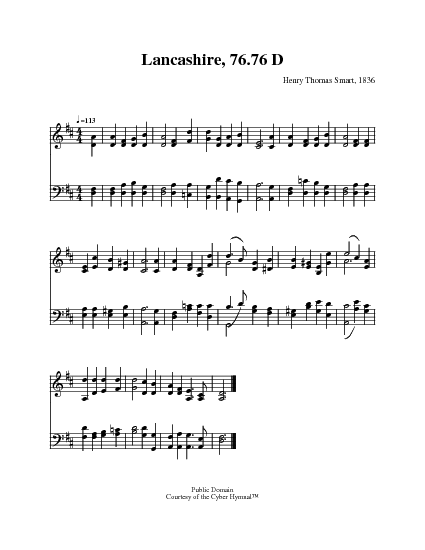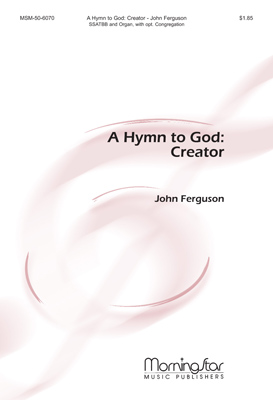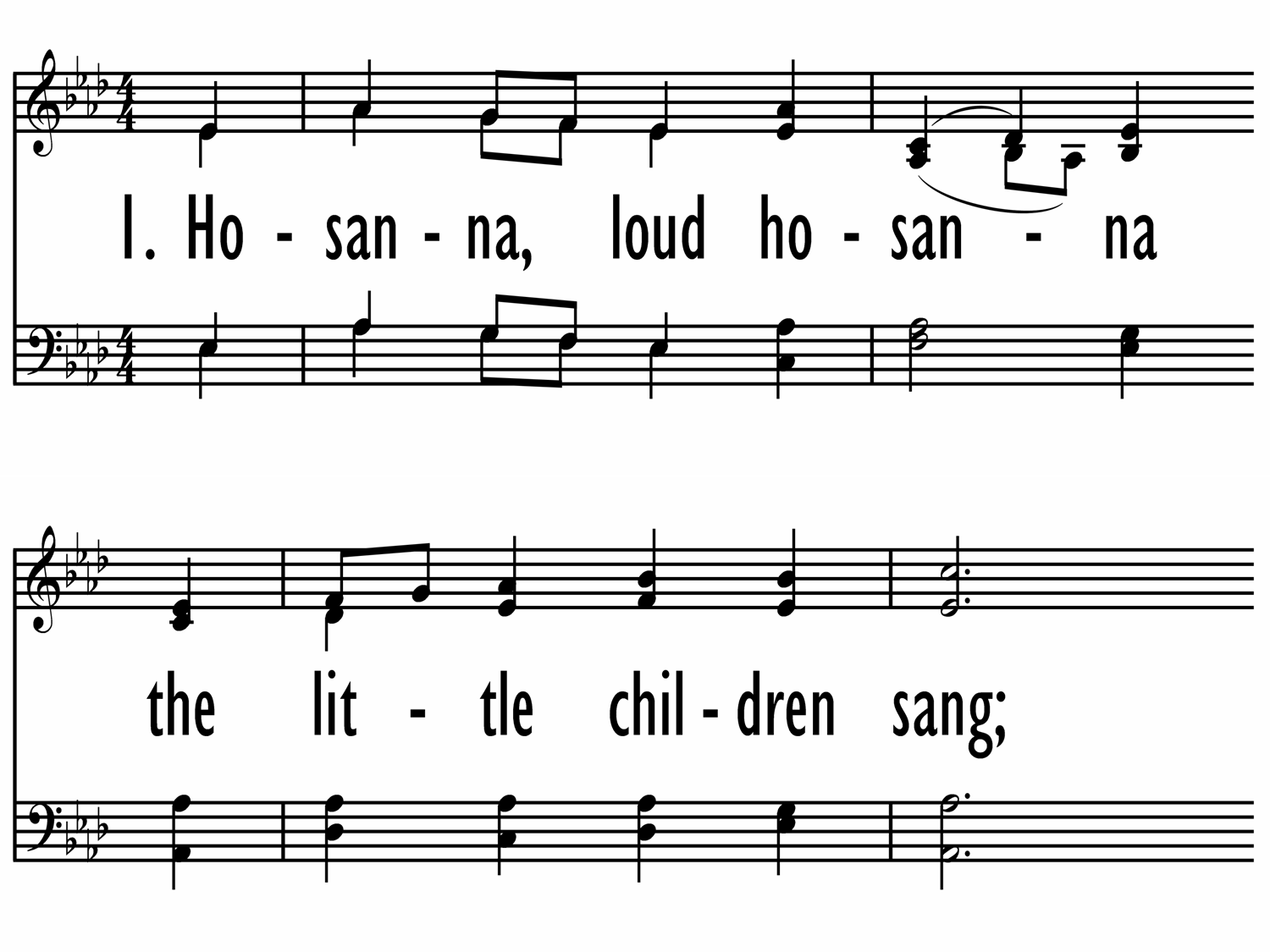- |
User Links
From Ocean unto Ocean

From ocean unto ocean, Our land shall own you, Lord
Author: Robert Murray (1880)Published in 78 hymnals
Printable scores: PDF, MusicXMLAudio files: MIDI
Representative Text
1 From ocean unto ocean
our land shall name you, Lord
and, filled with true devotion,
obey your sovereign word;
our prairies and our mountains,
forest and fertile field,
our rivers, lakes and fountains
to you shall tribute yield.
2 O Christ, we pray before you:
come in your power to dwell.
Now humbly we implore you:
make this land whole and well,
and may we know, Lord Jesus,
the touch of your dear hand,
and, healed of our diseases,
the tempter's power withstand.
3 Our Savior King, defend us,
and guide where we should go;
forth with your message send us,
your love and light to show;
till, fired with true devotion
and kindled by your word,
from ocean unto ocean
our land shall name you Lord.
Source: The Book of Praise #801
Author: Robert Murray
Murray, Robert, Minister of the Presbyterian Church in Canada, born Dec. 25, 1832, is the author of "From ocean unto ocean" (National Hymn), and "Lord, Thou lov'st the cheerful giver" (Almsgiving), in the Scotch Church Hymnary, 1898. [Rev. James Bonar M.A.] --John Julian, Dictionary of Hymnology, New Supplement (1907)… Go to person page >Text Information
| First Line: | From ocean unto ocean, Our land shall own you, Lord |
| Title: | From Ocean unto Ocean |
| Author: | Robert Murray (1880) |
| Meter: | 7.6.7.6 D |
| Language: | English |
| Copyright: | Public Domain |
Notes
Robert Murray (b. Earltown, Colchester County, Nova Scotia, Canada, 1832; d. Halifax, Nova Scotia, 1910), editor of The Presbyterian Witness and an outstanding preacher, wrote this text. It was published with three other hymn texts, all identified with just the initial "M," in the first Canadian Presbyterian Hymnal of 1880.
Murray's text originally made reference to Canada's geography, but its opening lines, "From ocean unto ocean," recall the words of Psalm 72:8: "He will rule from sea to sea." Although many patriotic hymns express national pride, this text clearly affirms the sovereignty and healing power of God in human and national affairs and humbly admits human sin and folly. Stanza 1 confesses that the earth's natural resources will yield their bounty in praise to God (see Ps. 72: 16), and stanzas 3 and 4 profess submission to the claims of Christ. This hymn helps us to say and sing that our service to God has an impact on our daily lives, on our stewardship of resources, on our living together in community, and on our hope for and experience of reconciliation in the market¬place and in political life.
Murray began writing poetry at the age of ten. Educated at the Free Church College of Halifax, he was licensed to preach in the Presbyterian Church of Canada. His life's vocation, however, was not in pastoral ministry. Instead he served as editor of The Presbyterian Witness for more than fifty years. A member of numerous denominational committees, Murray favored Canadian confederation and the temperance movement in his editorials. A number of his hymns were first published in The Hymnal (1880) of the Presbyterian Church in Canada and its successor, The Book of Praise (1918).
Liturgical Use:
Worship that focuses on stewardship of natural resources (including harvest thanksgiving) and on justice and charity in public life; patriotic occasions and other times of prayer for national life.
--Psalter Hymnal Handbook, 1988
Tune
LANCASHIRE (Smart)Henry T. Smart (PHH 233) composed the tune in 1835 for use at a missions festival at Blackburn, Lancashire, England. For that festival, which celebrated the three-hundredth anniversary of the Reformation in England, the tune was set to Reginald Heber's (PHH 249) “From Greenland's Icy Mountains.”…
ELLACOMBE
Published in a chapel hymnal for the Duke of Würtemberg (Gesangbuch der Herzogl, 1784), ELLACOMBE (the name of a village in Devonshire, England) was first set to the words "Ave Maria, klarer und lichter Morgenstern." During the first half of the nineteenth century various German hymnals altered the…
MISSIONARY HYMN (Mason)


 My Starred Hymns
My Starred Hymns






